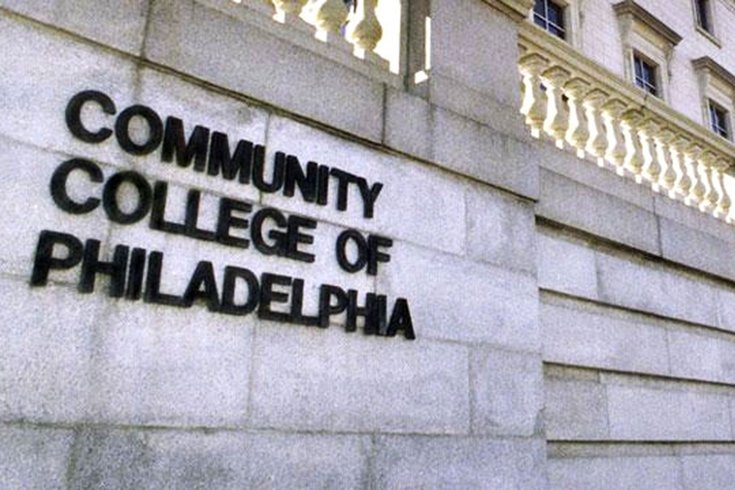
June 03, 2015
 Source/www.ccp.edu
Source/www.ccp.edu
The Community College of Philadelphia, on Spring Garden Street in Center City.
Community College of Philadelphia students earn associate degrees at rates slightly below those at comparable institutions, according to a report released Wednesday by the Pew Charitable Trusts. They also pay tuition costs that exceed the median rate of comparable schools.
"We set out to really focus on how effective the college has been at helping students obtain degrees and marketable job skills," project manager Thomas Ginsberg said.
Overall, Ginsberg said, researchers found CCP had a "mixed record" in areas that included graduation rates, tuition costs, remedial performance, workforce development and taxpayer support.
CCP is "well-positioned to make higher education accessible to residents, given the city's high poverty rate and its low educational attainment." – Thomas Ginsberg, Pew project manager
The study found that 17.5 percent of CCP students earned an associate's degree within six years, a rate slightly smaller than the roughly 20 percent who graduated from comparable institutions. But CCP's African American and Asian students obtained degrees at rates higher than their counterparts at other schools.
Using data from 2008 to 2013, the study compared CCP to three sets of institutions nationwide. Groupings included institutions serving large cities, those with substantial amounts of minority students receiving financial aid and those located in regions with high concentrations of colleges and universities.
Tuition, which cost $4,800 in the final year of the study, exceeded those of every other community college in the Philadelphia region. Tuition, adjusted for inflation, rose 56 percent from 2003 to 2013.
The study did not attempt to determine the factors driving the tuition increases, but CCP officials cited the lack of an effective state funding formula and the city's higher costs among the driving forces.
Diminished support from state and city sources also factored into the equation.
State and city funding for CCP fell by 12 percentage points from 2004 to 2014, according to the study. During the same period, its revenue received from students rose by 16 percentage points.
Ginsberg said Pew undertook the study because CCP is an important educational institution in the city. The school enrolls the highest number of new students seeking collegiate degrees.
"It's well-positioned to make higher education accessible to residents, given the city's high poverty rate and its low educational attainment," Ginsberg said.
The study also found CCP students are more likely to receive federal Pell grants than comparable schools, but more likely to take out student loans, too.
Nearly 70 percent of CCP students must take remedial courses, a rate comparable to other institutions. CCP students are more likely to finish their remedial classwork than their counterparts, but they graduate at lower rates.
CCP President Donald Generals released a statement saying the report confirms the school's commitment to providing expansive access to higher education. He particularly noted the school's successes in improving remediation performances and assisting disadvantaged males through its Center for Male Engagement.
"Nevertheless, like all colleges and universities in this country, we recognize that much more needs to be done to increase graduation rates and student success," Generals said. "We also recognize the importance of further aligning our program and curriculum efforts behind the economic and workforce needs of the city and surrounding region."
To improve its workforce and economic development programs, CCP is hiring a senior vice president charged with fostering partnerships with business and industry leaders, Generals said. He also noted the school's 50th Anniversary Scholars program will aid students struggling to meet tuition costs.
"We know that many students are unable to meet the gap between what financial aid and scholarships will pay for and their tuition obligation," Generals said. "We have committed to providing that scholarship support and access for deserving students."
CCP also is hiring more advisers and lessening the choice of electives, according to the study.